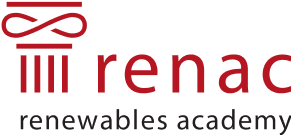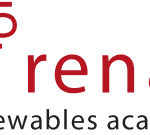This website uses cookies so that we can provide you with the best user experience possible. Cookie information is stored in your browser and performs functions such as recognising you when you return to our website and helping our team to understand which sections of the website you find most interesting and useful.
Customer-specific programmes
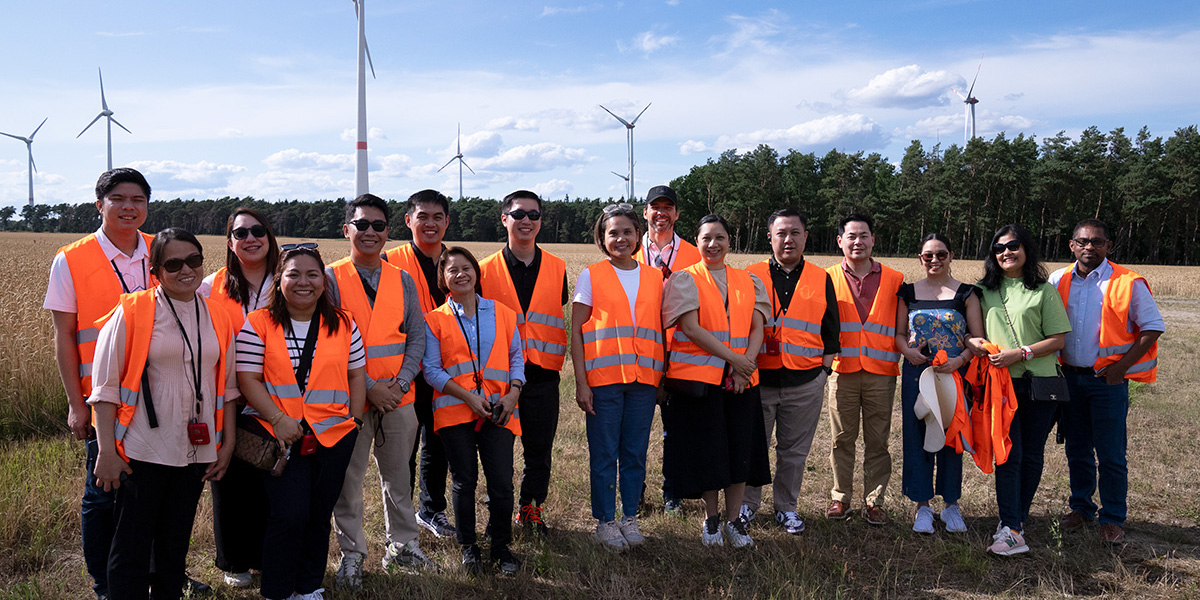
Job requirements in the green energy markets are complex and manifold. To ensure a company or organisation success, employees need extensive skills and up-to-date know-how.
RENAC customer-specific programmes offer the best way to meet participants’ training objectives:
- Analysis of participants’ capacity needs
- Selection of training contents and methods according to prior knowledge and needs
- The most suitable trainers
- Development of comprehensive materials with the highest quality standards
- Implementation of the training
Additionally, the training can be adjusted in duration and depth, organised for groups of various sizes and adapted to cover various technologies. Clients can determine when and where the training takes places.
Filter and search
Type
Name
Duration
Study time
Info
Content:
- Introduction to resource efficiency
- Financial aspects in water and wastewater management projects
- Financial aspects in waste management projects
- Financial aspects in material efficiency and recovery projects
Learning objectives:
After completion of this course, participants will be able to:
- gain specific know-how in resource-efficient technologies
- define their role in the transition towards more circular business models, as well as of how REff finance is applied in lending and leasing operations
Target group:
This training suits those who:
- Management of finance institutions
- Operational staff involved in green lending operations (loan officers, customer relationship managers, etc)
- Experts from related organisations (such as financial industry association, NGOs, central banks, relevant regulatory bodies, green consultants, etc.)
- low/medium voltage grids, short-term forecast, voltage and frequency control
Content:
- Understanding PV technology with regard to distribution grids
- Voltage control (steady state and dynamic behavior) in low and medium voltage grids
- Frequency control
- Short term power forecast of grid connected rooftop PV
Learning objectives:
After the seminar participants will be able to:
- Determine effects of high shares of PV on the distribution network
- Understand photovoltaic technology fundamentals with regard to grid integration (MPP-tracking and introduction to inverter technology)
- Explain voltage (static/dynamic) and frequency concepts with PV
- Give details of short term power forecast of PV
- Describe grid code requirements for low and medium voltage grids
Target group:
This training suits:
- Senior management positions with distribution grid companies
- Energy ministries
- forecast applications, forecast for a grid control centre, weather-to-power models
hours
Content:
• Purpose of short term wind / PV power forecast
• Area of application
• Forecast models
• Forecast errors
• Forecast for a grid control centre
Learning objectives:
After completing this course, participants will be able to:
- Explain the forecasting of RE generation and flexibility of power plants
- Distinguish different renewable power forecasting systems
- Define and calculate forecast errors
Target group:
Professionals from the energy sector (engineers)
- energy yield, generators, head and flow assessment, introduction to intakes, penstocks, turbines
hours
Content:
• Introduction to the unit ‘Fundamentals of small hydropower’
• Different types of hydro plant
• Resource assessment
• Civil engineering components
• Electro-mechanical equipment
• Costs
Learning objectives:
After completion of this course, participants will be able to:
- Distinguish different types of hydropower plants and their main components
- Calculate the power from a flow of water and describe different methods of measuring flow rate and head
- Explain the civil and electro-mechanical engineering system design
- Present specific costs as well as a cost breakdown of a sample scheme
Target group:
This training suits those who are interested in renewable energy technologies
- civil, contracts, design, economics, electrical engineering, generators, grid-connection, head and flow assessment, intake, mechanical engineering, off-grid, penstocks, permits, project management, rural electrification, turbines
Content:
- Physics of hydropower
- Head and flow assessment: desktop and on-site study
- Required surveys, permits and licenses
- Demand assessment (for off-grid applications)
- Basic steps in system design (for off-grid and/or grid-connected applications)
- Civil engineering (intake, power canal, penstock, powerhouse, outfall)
- Electro-mechanical engineering (turbines, generators, control system)
- Energy yield assessment
- Project management and system economics
Learning objectives:
After the seminar participants will be able to:
- Use typical equipment for performing head and flow measurement
- Perform calculations for preliminary system design
- Select and size the most appropriate intake, penstock, turbine and generator for a given application
- Predict the energy yield for a small hydro scheme
- Perform the financial analysis for a hydro scheme
Target group:
This training suits those who:
- wish to learn about design and installation of small hydro schemes
- Are looking at energy diversification and/or rural electrification, such as local councils
- Are entrepreneurs wishing to set up a business in this field
- annual energy production, planning, site assessment, sizing
hours
Content:
• Definition of small wind turbines
• Applications
• Wind hybrid applications
• Quality assurance
• Operation and maintenance
Learning objectives:
After completing the course, participants will be able to:
- distinguish among different applications of small wind turbines
- estimate system sizing
- identify standards and norms of small wind turbines and
- describe the main operation and maintenance activities for a small wind turbine
Target group:
This training suits those who are interested in small wind technology
- case studies, commissioning, components, feed-in-tariffs (FiTs), installation, net metering, operation and maintenance, sizing, system design
hours
Content:
• Introduction to small- and medium-scale grid-connected PV systems
• Feed-in tariffs and net metering
• Components of grid-tied PV systems
• Design and sizing of grid-connected PV systems
• Installation of grid-connected PV systems
• Commissioning grid-connected PV systems
• Operation and maintenance of grid-connected systems
• Case Study – 3kWp Grid-connected System, Germany
Learning objectives:
After completion of this course, participants will be able to:
- Distinguish the feed-in tariff and net-metering incentive schemes for grid-connected PV systems
- Name and explain the required components for grid-connected PV systems
- Perform preliminary grid-connected PV system design and sizing
- Describe the tasks during commissioning, operation and maintenance
Target group:
This training suits those who are (planning to be) involved in small-scale (up to 50 kW) grid-connected PV systems, engineers, installers
- considerations in project cycle/energy interventions, gender, gender concepts
hours
Content:
• The Gender and Energy Nexus
• Introduction to Gender Concepts
• Addressing Gender Considerations in the Project Cycle
• Gender considerations in energy interventions: notes on strategies
Learning objectives:
After completion of this course, participants will be able to:
- Discuss how gender considerations have been addressed in the energy sector and identify elements that are applicable to their own project
- Define different gender concepts as well as identify gender analytical tools
- Identify entry points and opportunities for addressing gender in renewable energy projects
- Recognize strategies designed for addressing gender in thematic clusters within the renewable energy sector
Target group:
This training suits those who:
are interested in renewable energy technologies
- economics, performance evaluation, SHIP, system design
hours
Content:
- Introduction to Solar Heat in Industrial Processes (SHIP)
- SHIP collector technologies and storage systems
- System design
- Practical considerations to ensure good system performance
- System economics
Learning objectives:
After completion of this course, participants will be able to:
- Give examples of industrial processes that are suitable for SHIP
- Describe the different solar thermal collector technologies that can be used for SHIP
- Explain the basics of SHIP system design and feasibility analysis
- Describe some important practical considerations of SHIP to ensure good system performance
- Explain which key performance indicators are useful for performing an economic analysis of a SHIP proposal, and describe the conditions that make a SHIP installation an economically attractive investment proposition
Target group:
dasdasdas
- economics, installation, pipes and pumps, planning
Content:
- Basics on electrics, hydraulics and PV
- Components for a solar pumping project
- System configurations and sizing
- Installation of solar pumping systems
- Operation and maintenance (O&M)
- Financial and economic tasks
Learning objectives:
After the seminar participants will be able to…
- Determine the most important basics for solar pumping projects
- Evaluate components, system topologies and available industry products
- Understand system configuration and sizing
- Identify dos and don’ts for installation, operation and maintenance
- Calculate a project
Target group:
This training suits those who:
- Are technically responsible for power generation systems in rural areas with focus on agriculture
- Want to integrate solar pumping solutions into their portfolio
- Need to evaluate the technical and economic potential of solar pumping systems.
- applications, installation, introduction, operation and maintenance, system design
hours
Content:
- Introduction and fundamentals of diesel hybrid technologies
- Applications of PV-diesel hybrid systems
- Environmental and risk assessment
- Design and dimensioning of hybrid systems
- Financial analysis of hybrid systems
- Installation and maintenance of hybrid systems
Learning objectives:
After completion of this course, participants will be able to:
- Understand advantages of energy system hybridisation
- Learn about working principles of PV-diesel hybrid systems;
- Review market opportunities and trends for hybrid systems in the Sub-Saharan Africa context;
- Analyse main aspects to take into account for PV-diesel hybrid system design;
- Assess the environmental impact of PV-diesel hybrid systems;
- assess the main risks encountered during PV-diesel hybrid project implementation
Analyse typical financial parameters used to evaluate hybrid systems; - Understand the operation, maintenance and monitoring requirements of PV-diesel hybrid systems.
Target group:
This training suits professionals who
- Intend to introduce and enhance the financing of green energy systems in their financial institution (e.g. bank managers and staff);
- Intend to promote green energy finance in the financial sector (e.g. policy and decision makers, public organisations)
- Aim at promoting investments in green energy systems among potential investors in the SME sector (e.g. project developers, representatives from associations, consultancies)
- Are potential investors for green energy system, specifically hybrid energy applications (e.g. SMEs, large cooperatives, project developers)
- direct and indirect, evacuated tube collectors, flat plate collectors, forced circulation, open and closed, system components, system design, thermosiphon
hours
Content:
- Fundamentals of solar thermal energy
- How solar thermal works
- Solar thermal collectors
- System types
- Solar thermal system components
- Basic system sizing
- Installation, commissioning, operation and maintenance
- Economics
Learning objectives:
After completion of this course, participants will be able to:
- Present the relevance of solar thermal in the energy mix and its basic economics
- Explain how solar thermal systems and their system components work
- Distinguish between different types of solar thermal systems and solar thermal collectors
- Describe basics of system sizing, installation, commissioning, operation and maintenance
Target group:
This training suits those who are interested in renewable energy technologies
Content:
- Introduction to resource efficiency
- Financial aspects in water and wastewater management projects
- Financial aspects in waste management projects
- Financial aspects in material efficiency and recovery projects
Learning objectives:
After completion of this course, participants will be able to:
- gain specific know-how in resource-efficient technologies
- define their role in the transition towards more circular business models, as well as of how REff finance is applied in lending and leasing operations
Target group:
This training suits those who:
- Management of finance institutions
- Operational staff involved in green lending operations (loan officers, customer relationship managers, etc)
- Experts from related organisations (such as financial industry association, NGOs, central banks, relevant regulatory bodies, green consultants, etc.)
Content:
- Understanding PV technology with regard to distribution grids
- Voltage control (steady state and dynamic behavior) in low and medium voltage grids
- Frequency control
- Short term power forecast of grid connected rooftop PV
Learning objectives:
After the seminar participants will be able to:
- Determine effects of high shares of PV on the distribution network
- Understand photovoltaic technology fundamentals with regard to grid integration (MPP-tracking and introduction to inverter technology)
- Explain voltage (static/dynamic) and frequency concepts with PV
- Give details of short term power forecast of PV
- Describe grid code requirements for low and medium voltage grids
Target group:
This training suits:
- Senior management positions with distribution grid companies
- Energy ministries
Content:
• Purpose of short term wind / PV power forecast
• Area of application
• Forecast models
• Forecast errors
• Forecast for a grid control centre
Learning objectives:
After completing this course, participants will be able to:
- Explain the forecasting of RE generation and flexibility of power plants
- Distinguish different renewable power forecasting systems
- Define and calculate forecast errors
Target group:
Professionals from the energy sector (engineers)
Content:
• Introduction to the unit ‘Fundamentals of small hydropower’
• Different types of hydro plant
• Resource assessment
• Civil engineering components
• Electro-mechanical equipment
• Costs
Learning objectives:
After completion of this course, participants will be able to:
- Distinguish different types of hydropower plants and their main components
- Calculate the power from a flow of water and describe different methods of measuring flow rate and head
- Explain the civil and electro-mechanical engineering system design
- Present specific costs as well as a cost breakdown of a sample scheme
Target group:
This training suits those who are interested in renewable energy technologies
Content:
- Physics of hydropower
- Head and flow assessment: desktop and on-site study
- Required surveys, permits and licenses
- Demand assessment (for off-grid applications)
- Basic steps in system design (for off-grid and/or grid-connected applications)
- Civil engineering (intake, power canal, penstock, powerhouse, outfall)
- Electro-mechanical engineering (turbines, generators, control system)
- Energy yield assessment
- Project management and system economics
Learning objectives:
After the seminar participants will be able to:
- Use typical equipment for performing head and flow measurement
- Perform calculations for preliminary system design
- Select and size the most appropriate intake, penstock, turbine and generator for a given application
- Predict the energy yield for a small hydro scheme
- Perform the financial analysis for a hydro scheme
Target group:
This training suits those who:
- wish to learn about design and installation of small hydro schemes
- Are looking at energy diversification and/or rural electrification, such as local councils
- Are entrepreneurs wishing to set up a business in this field
Content:
• Definition of small wind turbines
• Applications
• Wind hybrid applications
• Quality assurance
• Operation and maintenance
Learning objectives:
After completing the course, participants will be able to:
- distinguish among different applications of small wind turbines
- estimate system sizing
- identify standards and norms of small wind turbines and
- describe the main operation and maintenance activities for a small wind turbine
Target group:
This training suits those who are interested in small wind technology
Content:
• Introduction to small- and medium-scale grid-connected PV systems
• Feed-in tariffs and net metering
• Components of grid-tied PV systems
• Design and sizing of grid-connected PV systems
• Installation of grid-connected PV systems
• Commissioning grid-connected PV systems
• Operation and maintenance of grid-connected systems
• Case Study – 3kWp Grid-connected System, Germany
Learning objectives:
After completion of this course, participants will be able to:
- Distinguish the feed-in tariff and net-metering incentive schemes for grid-connected PV systems
- Name and explain the required components for grid-connected PV systems
- Perform preliminary grid-connected PV system design and sizing
- Describe the tasks during commissioning, operation and maintenance
Target group:
This training suits those who are (planning to be) involved in small-scale (up to 50 kW) grid-connected PV systems, engineers, installers
Content:
• The Gender and Energy Nexus
• Introduction to Gender Concepts
• Addressing Gender Considerations in the Project Cycle
• Gender considerations in energy interventions: notes on strategies
Learning objectives:
After completion of this course, participants will be able to:
- Discuss how gender considerations have been addressed in the energy sector and identify elements that are applicable to their own project
- Define different gender concepts as well as identify gender analytical tools
- Identify entry points and opportunities for addressing gender in renewable energy projects
- Recognize strategies designed for addressing gender in thematic clusters within the renewable energy sector
Target group:
This training suits those who:
are interested in renewable energy technologies
Content:
- Introduction to Solar Heat in Industrial Processes (SHIP)
- SHIP collector technologies and storage systems
- System design
- Practical considerations to ensure good system performance
- System economics
Learning objectives:
After completion of this course, participants will be able to:
- Give examples of industrial processes that are suitable for SHIP
- Describe the different solar thermal collector technologies that can be used for SHIP
- Explain the basics of SHIP system design and feasibility analysis
- Describe some important practical considerations of SHIP to ensure good system performance
- Explain which key performance indicators are useful for performing an economic analysis of a SHIP proposal, and describe the conditions that make a SHIP installation an economically attractive investment proposition
Target group:
dasdasdas
Content:
- Basics on electrics, hydraulics and PV
- Components for a solar pumping project
- System configurations and sizing
- Installation of solar pumping systems
- Operation and maintenance (O&M)
- Financial and economic tasks
Learning objectives:
After the seminar participants will be able to…
- Determine the most important basics for solar pumping projects
- Evaluate components, system topologies and available industry products
- Understand system configuration and sizing
- Identify dos and don’ts for installation, operation and maintenance
- Calculate a project
Target group:
This training suits those who:
- Are technically responsible for power generation systems in rural areas with focus on agriculture
- Want to integrate solar pumping solutions into their portfolio
- Need to evaluate the technical and economic potential of solar pumping systems.
Content:
- Introduction and fundamentals of diesel hybrid technologies
- Applications of PV-diesel hybrid systems
- Environmental and risk assessment
- Design and dimensioning of hybrid systems
- Financial analysis of hybrid systems
- Installation and maintenance of hybrid systems
Learning objectives:
After completion of this course, participants will be able to:
- Understand advantages of energy system hybridisation
- Learn about working principles of PV-diesel hybrid systems;
- Review market opportunities and trends for hybrid systems in the Sub-Saharan Africa context;
- Analyse main aspects to take into account for PV-diesel hybrid system design;
- Assess the environmental impact of PV-diesel hybrid systems;
- assess the main risks encountered during PV-diesel hybrid project implementation
Analyse typical financial parameters used to evaluate hybrid systems; - Understand the operation, maintenance and monitoring requirements of PV-diesel hybrid systems.
Target group:
This training suits professionals who
- Intend to introduce and enhance the financing of green energy systems in their financial institution (e.g. bank managers and staff);
- Intend to promote green energy finance in the financial sector (e.g. policy and decision makers, public organisations)
- Aim at promoting investments in green energy systems among potential investors in the SME sector (e.g. project developers, representatives from associations, consultancies)
- Are potential investors for green energy system, specifically hybrid energy applications (e.g. SMEs, large cooperatives, project developers)
Content:
- Fundamentals of solar thermal energy
- How solar thermal works
- Solar thermal collectors
- System types
- Solar thermal system components
- Basic system sizing
- Installation, commissioning, operation and maintenance
- Economics
Learning objectives:
After completion of this course, participants will be able to:
- Present the relevance of solar thermal in the energy mix and its basic economics
- Explain how solar thermal systems and their system components work
- Distinguish between different types of solar thermal systems and solar thermal collectors
- Describe basics of system sizing, installation, commissioning, operation and maintenance
Target group:
This training suits those who are interested in renewable energy technologies
Target Groups
Public sector officials for legal frameworks, regulation and implementation:

- Ministries
- Regulators
- Local administrations
Multipliers and development organisations:

- Development corporations
- Energy agencies
- International financing institutions
- NGOs
Private sector:

- Project developers
- System integrators
- Engineers and technicians
- Investors
- Financing institutions
- Grid operators
Capacity building and dissemination sector:

- Public and private training institutions
- Vocational training institutions
- Universities
Value Chain
We design and implement customer-specific programmes and services along the value chain in a holistic concept.
Our approach to Renewable Energy (RE) and Energy Efficiency (EE) is manifold: technology related knowledge is the basis and then each RENAC training and service focus on technical, economic, legal or project related aspects according to the target group. RENAC is also very active in international business matchmaking and market development services.
In our capacity building services we supply a variety of programmes to train trainers, to build training centres and to establish quality assurance processes.
Our Training Concept
Customer-Specific Programmes – what does it mean?
We offer customer-specific programmes according to client needs and participant job requirements in all green energy sectors. Based on an analysis of requested knowledge or specific job tasks and the level of existing knowledge, we develop a training concept proposal.
The concept includes recommendations for online or in-person trainings, or both. We develop the training concept taking the given resources on budget and learning time into account. After feedback from the client, we fine-tune the concept for approval.
Depending on the needs of our clients, we offer different levels of trainings (basic, intermediate, and advanced).
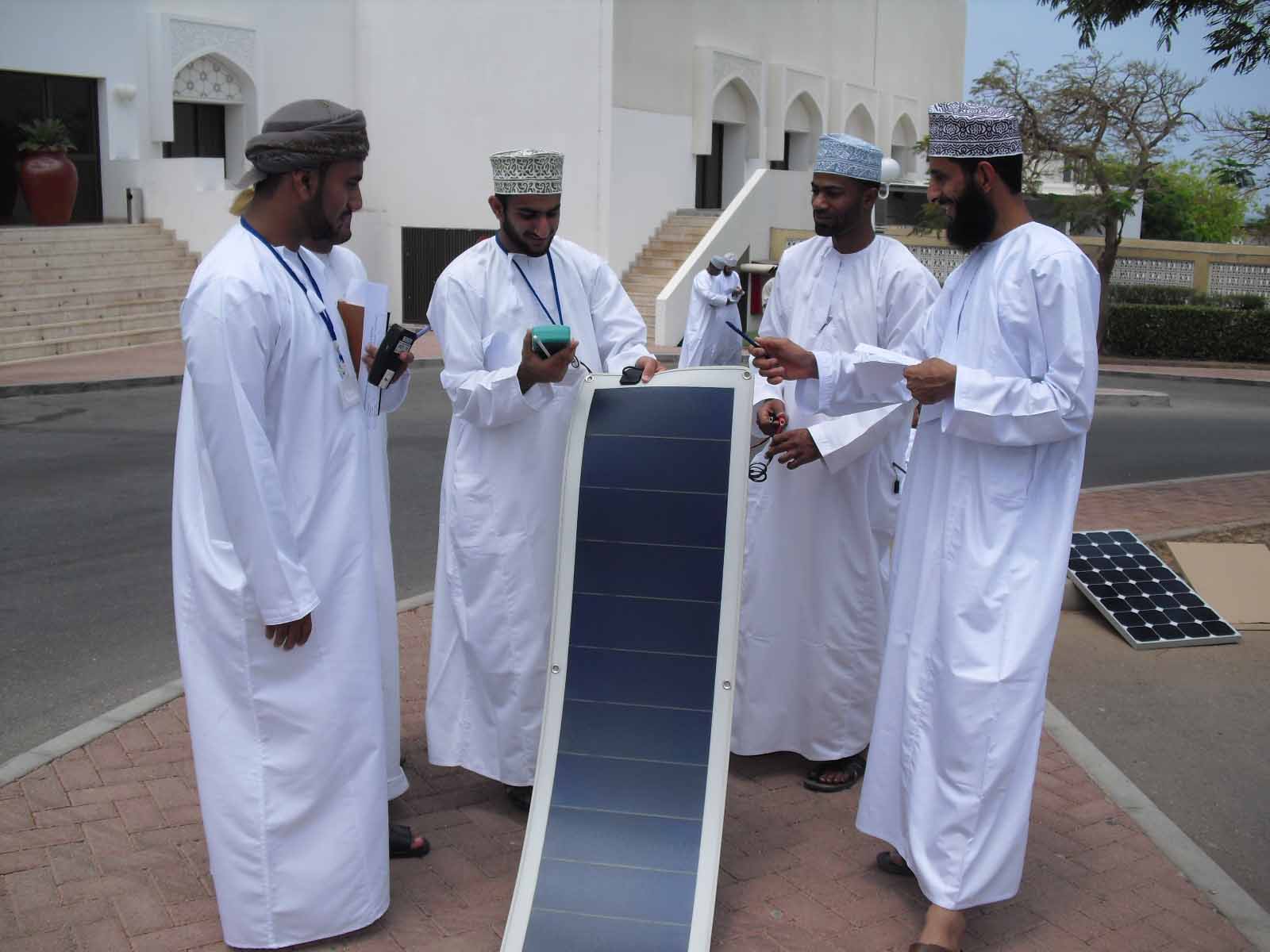
Service Catalogue
Find detailed information about the programme that best aligns with your needs and preferences.
Are you interested in a Customer-specific programmes?
Kindly fill out this questionnaire and attach it to the form on the right:
© 2024 | Renewables Academy (RENAC) AG
